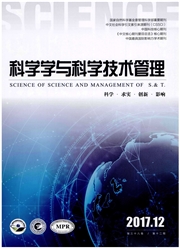

 中文摘要:
中文摘要:
以往的研究指出员工的权力感是预测其建言行为的重要因素,但是对权力感一建言行为关系之间的作用机制缺乏深入分析。采用在2个时间点收集的372个下属和78个领导的配对样本,探讨了员工权力感对建言行为的影响,并应用自我验证理论(self-verification theory)对此关系做出了解释。研究结果表明:员工的权力感对建言行为有显著的正向影响;员工组织自尊中介了员工权力感对建言行为的影响;主动性人格不仅调节了员工权力感和建言行为之间的关系,还调节了员工权力感通过组织自尊影响建言行为的间接效应,表现为被调节的中介关系。
 英文摘要:
英文摘要:
Previous studies have found the positive relationship between employees' sense of power and voice behaviors but haven't explained the mechanism clearly. Using a two-wave research design, we collected data from a sample of 372 subordinates matched with 78 leaders to examine the hypothesized relationship. The results show that employees' sense of power is positively related to voice behavior; organization-based self-esteem (OBSE) mediates that relationship; proactive personality moderates the effect of sense of power on OBSE as well as the indirect effect of sense of power on voice behavior through OBSE.
 同期刊论文项目
同期刊论文项目
 同项目期刊论文
同项目期刊论文
 Trends in China’s gender employment and pay gap: estimating gender pay gaps with employment selectio
Trends in China’s gender employment and pay gap: estimating gender pay gaps with employment selectio Linking Gender Role Orientation to Subjective Career Success The Mediating Role of Psychological Cap
Linking Gender Role Orientation to Subjective Career Success The Mediating Role of Psychological Cap Effect of Organizational Politics on Employees’ Work Responsibility: Empirical Analysis Based on New
Effect of Organizational Politics on Employees’ Work Responsibility: Empirical Analysis Based on New Learning goal orientation and creative performance: The differential mediating roles of challenge an
Learning goal orientation and creative performance: The differential mediating roles of challenge an Roles of creative process engagement and leader-member exchange in critical thinking and employee cr
Roles of creative process engagement and leader-member exchange in critical thinking and employee cr Human Capital Investment in Children: An Empirical Study of Household Child Education Expenditure in
Human Capital Investment in Children: An Empirical Study of Household Child Education Expenditure in Evidence on the impact of sustained exposure to air pollution on life expectancy from China’s Huai R
Evidence on the impact of sustained exposure to air pollution on life expectancy from China’s Huai R Relational Versus Collective Identification Within Workgroups: Conceptualization, Measurement Develo
Relational Versus Collective Identification Within Workgroups: Conceptualization, Measurement Develo 期刊信息
期刊信息
